Top 10 Best Artificial Intelligence Startup Ideas for 2023

Top 10 Artificial Intelligence Startup Ideas for 2023
A notable technology at the moment is Artificial Intelligence (AI). AI can generally be described as the reproduction of human perceptions and intelligence through artificial means.
In practice, Artificial Intelligence does not have a clear definition. Several fields, including computer science, cognitive science, medicine, psychology, and philosophy, are still exploring this topic.
A common misconception about Artificial Intelligence is that it’s already smart enough to solve any problem. As of now, Artificial Intelligence is unable to understand everything, including cognitive abilities, common sense, emotion, and so on, related to humans. Artificial Intelligence does not exist that is capable of doing anything.
Developing a general Artificial Intelligence that can handle some subjects is a great goal for researchers, and various ideas have been proposed. It has not, however, led to any breakthroughs. As a result, AI is still evolving.
The current AI has not yet reached the point where it can be used nearly, but that does not mean it is unusable. In some areas, AI’s outstanding abilities far outweigh humans’ limitations, but overall, there are no universal AI programs that can do everything. There have been developments in AI that can make diagnoses more accurately than doctors, for example. More than half of the market’s transactions are carried out by algorithmic transactions such as high-frequency and ultra-high-speed trading.
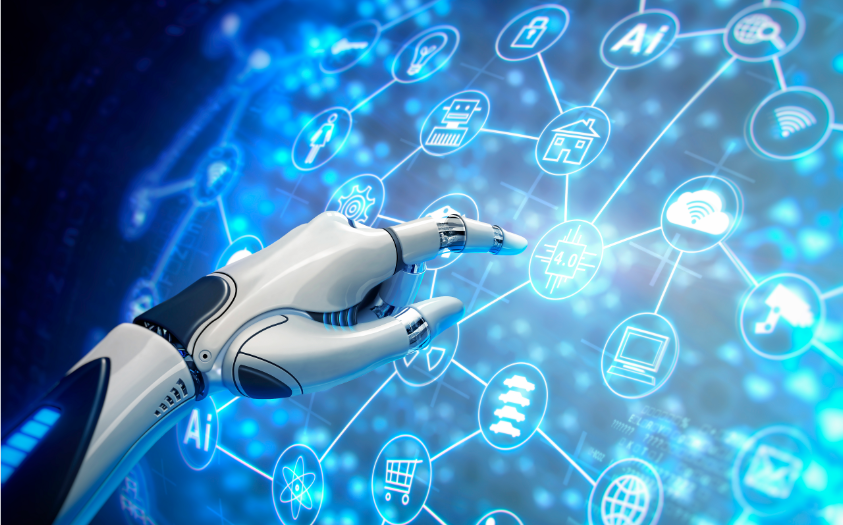
From the “first generation” that supported human intellectual work by applying rule-based expert knowledge, AI has moved on to the “second generation” that finds the optimal solution through statistical / search models, and now it is implementing the “third generation” that dramatically improves recognition performance.
In recent years, AI has attracted a lot of attention exactly because this third-generation technology has emerged. “Deep learning” is a method that is based on the nerve circuits in the human brain. A conventional machine learning method reads a lot of data to find hidden rules and correlations, even if the data scientist does not design them (*). It will be able to discover “meanings” and “concepts” autonomously by making inductive inferences just like humans. Also, it will refine wisdom by learning continuously. Deep learning has greatly improved AI’s accuracy.
You can use it to identify and predict things/events, etc. Data items can be selected or combinations of data items can be used to set up the application.
There are, however, several differences between third-generation AI and first-generation AI. According to your purpose and application, the best method will vary.
Consider the recent hot topic of AI Shogi (Japanese Chess). We need a machine learning and deep learning techniques to anticipate and surprise the opponent. Nevertheless, registering a rule base from the beginning is much more efficient than making AI learn the rules and standard moves from scratch.
With all three generations of methods combined in the right place, and integrating mobile, wearables, IoT, analytics (statistical analysis), and other systems seamlessly, we can design a complete solution to solve a variety of business challenges. The future of business depends on AI.
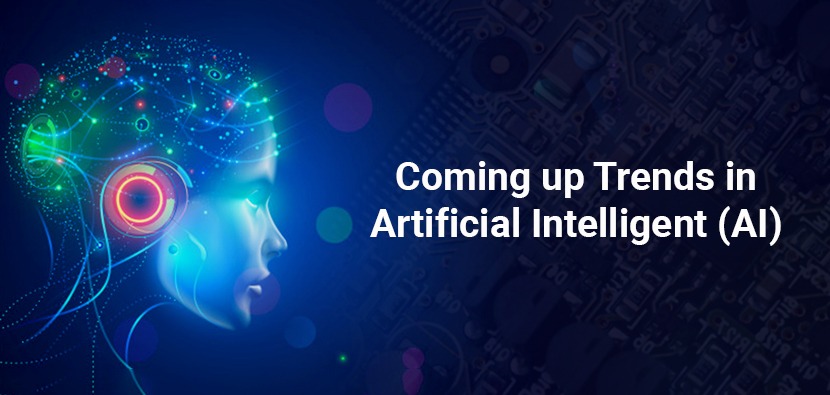
To implement AI effectively in business, you must combine the mechanisms used in the second and third generations with those used in the first generation, based on rule-based algorithms.
As a technology, artificial intelligence has successfully attracted development and growth. Artificial intelligence has become a great option, around which businesses can be created, besides enabling businesses to gain an edge over their competitors. Increasingly advanced artificial intelligence service providers are required in the tech market as a result of the recent development of AI. Recent years have seen a rapid expansion of the AI startup ecosystem.
Millions of niches around the world can benefit from this relatively new technology. Our list of the best AI startup ideas will help you create a profitable business in 2023, even if you don’t know what might work for you.
- AI Healthcare Startup
Medical and healthcare startups are thriving with artificial intelligence. Medical AI startups use advanced technologies to diagnose, identify, and treat patients who are facing adverse health conditions. AI startups aim to improve treatment facilities and save patients money.
Big data plays a crucial role in a productive, thriving society, which is why healthcare is one of the most critical sectors. AI can save lives when applied to healthcare data. Health care workers can benefit from AI in their daily work. As a result of AI in healthcare, better patient outcomes can be achieved through enhanced preventive care, more accurate diagnoses, and more effective treatment plans. Analyzing data from the government, healthcare, and other sources can also be used to predict and track infectious diseases. Thus, AI can play a crucial role in global public health by facilitating the fight against epidemics and pandemics.
As healthcare becomes increasingly complex and data-rich, artificial intelligence (AI) will become increasingly important. Life sciences companies and payers are already utilizing several types of AI. Diagnoses and treatment recommendations, patient engagement and adherence, and administrative functions are among the most common applications. Healthcare professional jobs will not be automated large-scale for a considerable time after AI has demonstrated that it can perform many tasks as well or better than humans. AI’s application to healthcare raises ethical issues as well.
Healthcare and business are increasingly embracing artificial intelligence (AI) and related technologies. Providers, payers, and pharmaceutical companies can transform many aspects of patient care and administration with technology.
In numerous studies, AI is more effective than humans at major healthcare tasks, such as diagnosing diseases. A new generation of algorithms is already outperforming radiologists at identifying cancerous tumours, and the tools they use are helping researchers construct cohorts in expensive clinical trials. AI will not replace humans for broad medical processes for a variety of reasons, however.
A collection of technologies makes up artificial intelligence. In the healthcare sector, most of these technologies are directly related to healthcare processes and tasks, but their specific functions and tasks vary greatly.
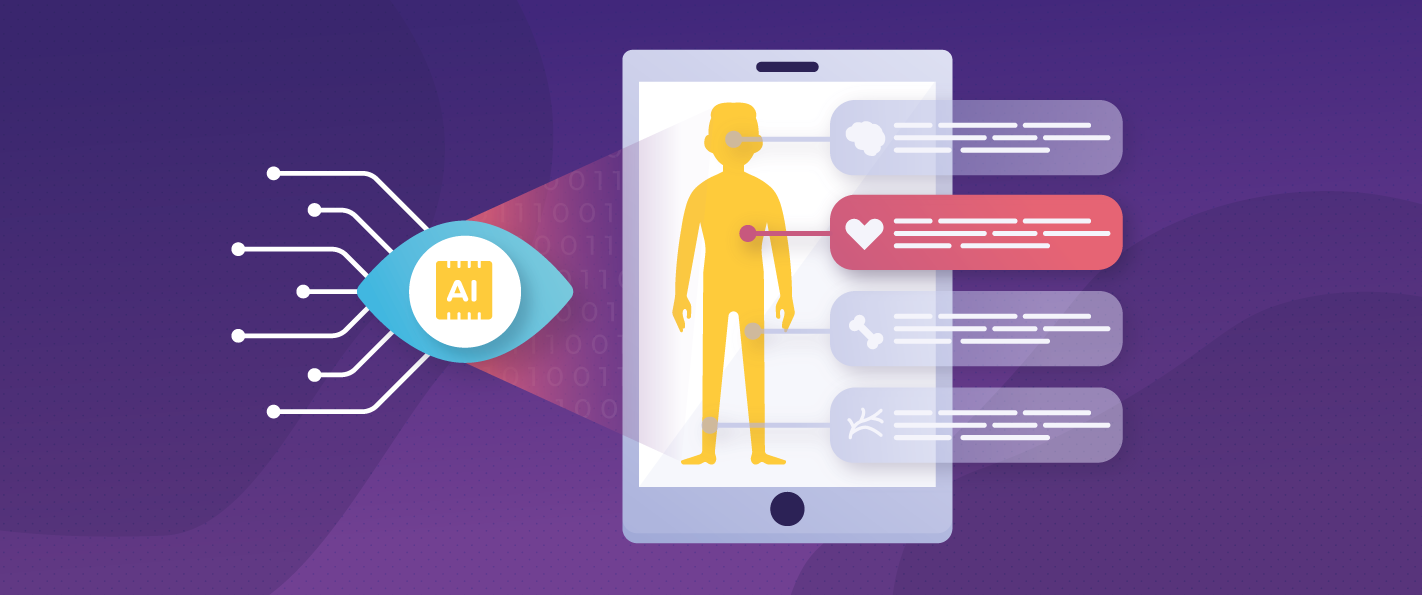
- AI-Driven Cybersecurity Startup
In the coming years, we’ll become increasingly reliant on technology, which makes cybersecurity a necessity. Businesses are becoming increasingly concerned about the possibility of cyberattacks, so AI and machine learning incorporate into hyper-converged infrastructures that aim to provide robust security. The security industry might be an ideal place to start up your AI business.
NGIOA aims to achieve broader capabilities than geospace and geographical boundaries as its government, industries, organizations, and academia (NGIOA) seek to expand their capabilities beyond geospace and geographical borders. Cyberspace, geospace, and space (CGS) systems are interconnected and interdependent, creating complex security challenges that seem beyond human capacity, intelligence, and speed.
To respond in real-time to cyber-attacks, we must analyze vast amounts of data and its interdependencies to keep up with the speed of the attacks. It is believed that cyber-security or cyber-defense cannot be handled by humans without a considerable amount of automation given the dynamic nature of the security threats.
The application of artificial intelligence processes could be used to dynamically respond to cyber threats by implementing learning capabilities in automation software, as intelligence is a important factor for competition, communication, and collaboration in cyberspace, geospace, and space.
As the ultimate goal and most challenging challenge of artificial intelligence, it is perhaps to create intelligent autonomous robots capable of coexistence with humans.
As an example, Maymi points to spam filters as an example of how AI techniques like machine learning, neural networks, and statistics can find very specific things.
You’ll find that while artificial intelligence excels at point solutions, it doesn’t do so well at analyzing an organization holistically and telling you what a bad guy is going to do next. The objective is to determine an adversary’s intent, why he or she is pursuing a specific objective, and how, by observing broader patterns of behavior.
Even if companies that have suffered headline-grabbing breaches had been equipped with hindsight, they could have built AI systems to detect the threats, it wouldn’t have been that difficult. It is a matter of telling it what you want it to examine.

- Energy and Cost-Saving Startup
One of the best AI business ideas that emerging startups typically choose is to create an AI startup that focuses on reducing drilling costs and energy usage. Using AI, they hope to produce applications that can now predict the future energy load before integrating it with other functions. As a result, waste and costs can be reduced in a wide range of ways.

- AI-Based Smart Home Management Startup
AI-based smart home startups are aimed at automating homes and simplifying home management. By pressing a few buttons, the startup enables customers to manage everything about their property.
It is no longer a luxury to live in a smart home. Living spaces with these types of appliances are becoming more convenient, comfortable, and safe for people. The presence of artificial intelligence in houses around the world has increased in recent years. In addition to adding safety and security, AI technology has made living more enjoyable for people. Technology enthusiasts must have smart household appliances due to the increased demand for smart homes.
The capability of artificial intelligence to improve home security is one of the most popular uses for it in the design of homes. Face recognition and threat analysis are two of the features that are incorporated into devices powered by this technology. As soon as someone stands at the front door, the system can recognize objects and faces and notify the user. Using facial recognition, AI devices can identify the faces of family members, friends, and even pets. Smart cameras powered by artificial intelligence will monitor activity in the neighborhood within a short time and identify potential threats. Smart locks activated via mobile devices have also been developed using artificial intelligence.
It is already possible to buy smoke alarms with AI technology. A smart feature that prevents fires and carbon monoxide leaks, these devices also speak, alert, and think on their own. Smartphone apps allow owners to communicate with smart smoke alarms. In addition to sending alerts regarding battery level, smoke, and carbon monoxide leaks, they can pinpoint locations where fires or smoke outbreaks are likely to occur.
Human abilities are mimicked by artificial intelligence. Our lives can be made much easier by integrating this feature into smart homes. Humans can save time and effort by living in smart homes so that they can focus on what matters the most to them. The more time you have to focus on the big stuff, the more time you will have for running the robotic vacuum, washing, and drying clothes.
Adjusting the interior temperature based on the preferences of the people present in the house, playing music, setting the temperature of your car, and turning on and off the lights. Based on voice and video recognition and cloud connectivity, LG has already developed DeepThinQ 1.0 technology. Viaroom Home and Samsung have done the same!
Distributed energy generation can benefit from artificial intelligence.
A variety of smart home systems can be controlled using voice commands using AI-enabled devices like Alexa, Siri, and Google Assistant. AI-enabled assistants will learn from mistakes every time they make them. Evolution is inevitable! By learning from the error, your voice assistant attempts to provide a more favorable response.
Time is used to store, analyze, and improve everything. Smart home features are controlled through data and machine learning based on your digital voice assistant. Moreover, Google Assistant can now speak and understand more than one language at once, which makes it an excellent addition to bilingual households.

- AI Marketing Startup
There are many challenges and complexities associated with marketing. Researching the competitors’ moves and finding innovative ways to increase brand visibility takes a great deal of time and patience. An AI-driven marketing system, however, could help a business recover losses and move towards success by automatically assessing its marketing performance. AI marketing service providers are welcomed by the industry for this reason among others.

- AI Entertainment Startup
Artificial intelligence startups are entering the glamorous entertainment industry, providing voice and image recognition applications for recreation. These applications can be enhanced by incorporating machine learning to add smart voice assistant features since voice assistants are becoming more common.

- AI Logistics and Supply Startup
Applications and logistics are two areas where there are several top AI startups. Artificial intelligence is extensively used in supply chain management to address complex business challenges such as rising fuel costs and transportation costs. Coming up with new ways to reduce your company’s costs and still meet customer needs might help it grow.
Decision-making, cycle-time reduction, operations, and continuous improvement all require speed. In the coming years, artificial intelligence will make waves in the supply chain.
In the next five years, Gartner predicts that supply chain organizations will double the amount of machine automation. A 40% compound annual growth rate (CAGR) is predicted for IoT Platforms in seven years, growing from $1.67B in 2018 to $12.44B in 2024.
Globally, reducing uncertainty is the top priority in today’s connected digital world. The industry needs to leverage the prowess of artificial intelligence (AI) in supply chains and logistics to meet the growing expectations of supersonic speed and efficiency between suppliers and business partners of all types.
The right flow of inventory in and out of a warehouse can be ensured with accurate inventory management. Inventory-related variables can be very time-consuming and error-prone, such as order processing, picking, and packing. It is also important to manage inventory correctly to prevent overstocking, inadequate stock, and stock-outs unexpectedly.
AI-driven inventory management tools can be highly effective due to their ability to handle mass data. By analyzing and interpreting large datasets quickly, these intelligent systems can provide timely guidance on forecasting demand and supply. As well as predicting and discovering new consumer habits, these AI systems can also predict seasonal demand. By using this AI application, customers can predict future demand trends while inventory overstocking is minimized.
Smarter planning and efficient warehouse management can be provided by AI-based automated tools, enhancing the safety of workers and materials. In addition to analyzing workplace safety data, artificial intelligence can help manufacturers identify potential risks. Stocking parameters can be recorded, operations updated, and proactive maintenance can be performed. To maintain warehouse security and compliance with safety standards, manufacturers can react swiftly and decisively.
Automation can assist in retrieving items from warehouses at the right time and ensure a smooth journey to the customer. Warehouses are integral parts of the supply chain. Furthermore, AI systems can solve several warehouse issues more quickly and accurately than humans, simplify complex procedures, and speed up work. AI-driven automation can also reduce warehouse staffing and costs in addition to saving valuable time.
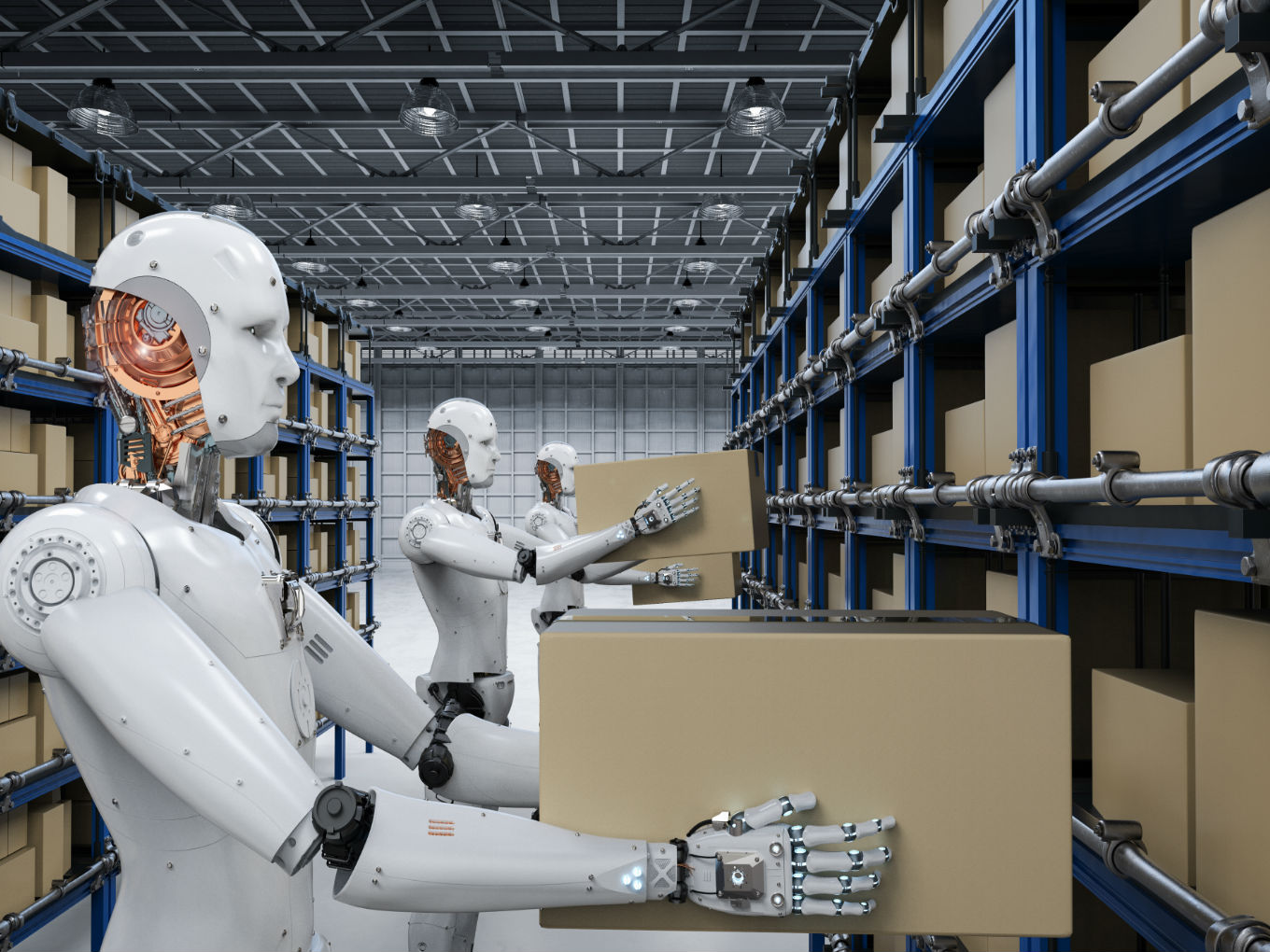
- AI-Driven EdTech Application Business
AI companies serving the education industry are some of the best in the world. The needs of students in today’s digital era are quickly being read by and intercepted by startups using machine learning and artificial intelligence.
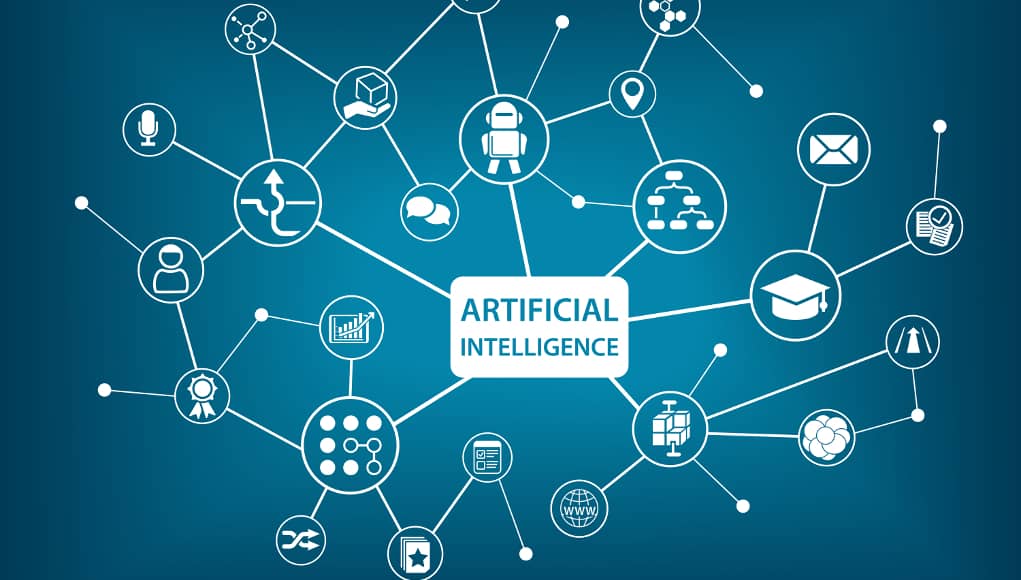
- AI Workflow Automation Startup
A great user experience and enhanced productivity are generated by automated workflows. As there aren’t a lot of startups that are aimed at designing a company’s workflow, starting an artificial intelligence startup that represents such a niche subject matter might prove challenging, but it will give the company an advantage over its competitors.

- AI-Personal Shopper Business
Retailers can better serve shoppers with the help of artificial intelligence by delivering fast-paced intelligence. Providing accurate products in an omnichannel world, where consumers expect affordable fashions, omnichannel excellence, and personalized marketing, is the key to retailers winning consumers over. AI assistants are now available on most online shopping portals to help customers shop for the best looks! A great way to get started in the AI industry is to contribute to this burgeoning industry.
edited and proofread by nikita sharma



